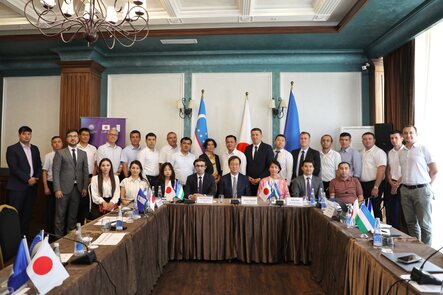A new project aimed at reducing greenhouse gas emissions and improving energy efficiency in schools, hospitals, and public transportation has been launched in Uzbekistan. The initiative is implemented by the United Nations Development Programme (UNDP) in Uzbekistan, with support from the Government of Japan and the Ministry of Economy and Finance of Uzbekistan.
The project addresses energy crises caused by extreme heat and cold, helping to make the country’s
infrastructure more resilient to rapid climate changes.
What will the project achieve?
- Energy-efficient schools, hospitals, and kindergartens. Buildings will be equipped with thermalinsulation,energy-efficientwindows,heatpumps,andsolarpanels,reducingenergy consumption and ensuring year-round comfort.
- Reduced CO₂ emissions and air pollution. The use of clean technologies and decreased relianceonfossilfuelswilllowerthecarbonfootprintandimproveairqualityinurbanand rural areas.
- Comfortinheatandcold.Modernheatingand coolingsystemswillmaintainastableindoor climate regardless of the season or weather anomalies.
- Supportfor"green"transportation.Pilotsolutionswillincludeelectrictransport,charging infrastructure, and air pollution monitoring along routes.
- Investments andtechnologies fromJapan. Through the JointCreditingMechanism (JCM), Japanesefunding,technologies,andexpertisewillbeleveraged,creatingopportunitiesto scale successful solutions across the country.
Why is this important?
The country’s energy system is regularly strained during extreme weather periods. More efficient infrastructure will reduce dependence on fossil fuels, lower utility bills, and improve people’s quality of life.
International Cooperation
The project is based on an agreement between Japan and Uzbekistan under the Paris Agreement. It contributes to the country’s goals of reducing emissions by 35% and increasing the share of "clean" energy to 25% by 2030.
“This project is not just about the environment. It’s about comfort, health, and a sustainable future,” noted
representatives from UNDP and the Agency for Energy Efficiency.















